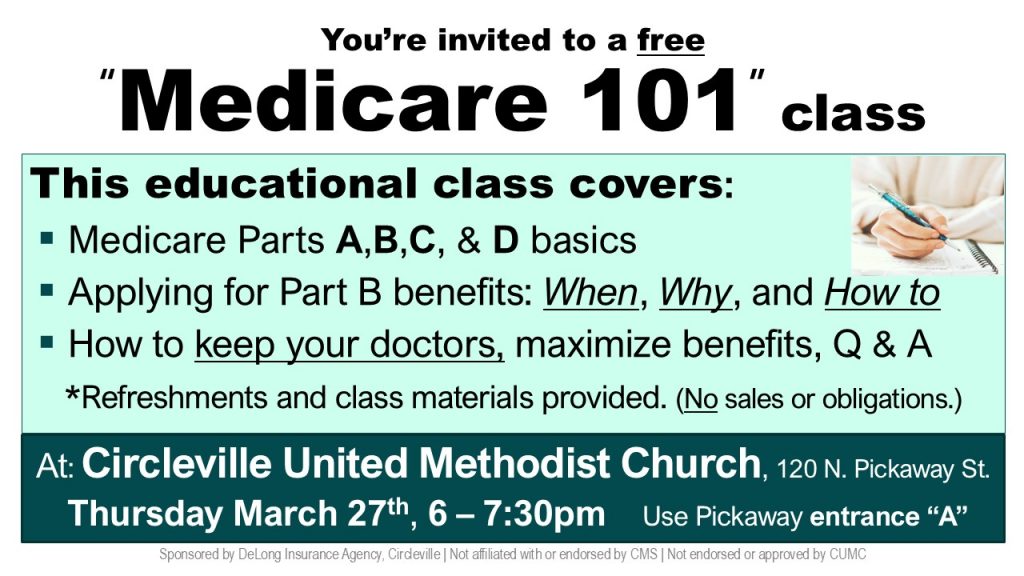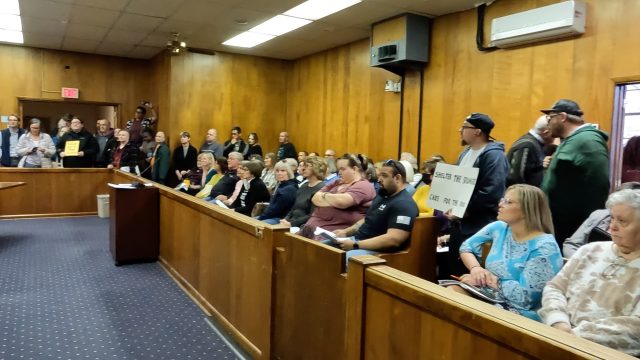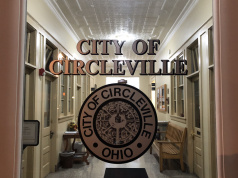
Chillicothe – In recent discussions surrounding the proposed “anti-camping” ordinance in Chillicothe, a crucial question arises: are we truly serving the best interests of our community, or are we setting ourselves up for legal and moral challenges down the road? Local Nathaniel Elliott shared his statement to the Chillicothe Council last night as an opinion piece. below is his full statement, unredacted and unedited.
Nathaniel Elliott, 590 W 5th St Apt 6
This is not what I want to be doing tonight. I hate it really. Dan, I know you feel me, probably the rest of you too. But, I keep deciding that it is worth my time and energy to speak on this issue that worries me for this city — the camping ordinance.
You on the council have listened to a lot of talk about this, and maybe tonight you will decide what to do with this legislation.
If you don’t know what I do, I’m a transportation planner for the paper mill. It’s a management job, kinda boring. I’ve been in logistics for 10 years. Before that, retail management. Before that, I briefly was a teacher. I was raised by church pastors. I’m a political independent. I’ve experienced times of unemployment and mental health crisis, had my life saved by firefighters and doctors, and I volunteer as a board member for Paint Valley ADAMH, and I hope something I do might save a life as well. I’ve never worked for the city, but my papaw Thurman served passionately as a councilman at-large for many, many years.
In my present job, I’m constantly making decisions, responding to hundreds of emails and executing tens of thousands of dollars of shipments every day. These responsibilities are my job.
The planning part of my job gets technical, but as with any planning-related decision making, we operate within a framework. We have guidelines dictating how to set up transportation for our many orders. It’s logic-based work.
Now, with chapter 555, you’ve heard a lot of folks express what some call “appeals to your humanity,” or “emotional appeals.” In management, however, emotions take a back seat to logic and reasoning. Some say business isn’t about emotions–even though human beings are affected by business.
Some of you may look at this issue from more of a business management point of view. And just like I have to rely on technical guidelines to do my job, you in city government rely on the law to keep your house in order. It makes sense.
We have a capable Law Director who represents *the law* and wrote chapter 555 before handing it to council for consideration. I imagine it feels like that carries the weight of authority, but it is not the law director’s job to legislate – that’s council’s job. Council has to own this, and if the city has operational trouble on account of what you decide to do with chapter 555, you council members own it. It’s not a quick, easy decision.
If this ordinance passes as written and it hurts the budget, you own it. If it hurts people in this city as you’ve been informed that it will, you own that. When the people of this city see the harm that’s done and are dissatisfied with you, you own that.
Each of you is a decision maker here — NOT the law director, NOT other people in your political party. It is you who have been hired by the public to take responsibility.
If this passes and the ACLU gets involved and it turns into a costly court battle for the city, that becomes your legacy.
I wouldn’t want to be in your shoes, but I know I’d need to think in these terms if I were.
Voting yes is not your only option. You can table this. You can vote no. You can pull out a pen and edit this thing. Mayor Feeney sent concerns about the language and other concerns from our police chief that need taken into consideration before this legislation should be taken to a vote.
The best option is to table it, then discuss it on public record with one another, consult experts, see what works in other cities, collaborate bi-partisanly, and if you still think the city needs an ordinance about camping — while trespassing, littering, leaving out sharps, and burning trash are already covered by ordinances going back to the 1950s — then work together on regulation that is both humane and logical.
People have pointed out that there are some merits in some of the things that are said in the language as it’s written, but that doesn’t change the fact that it’s flawed and you need to do more to change what’s in there and make it right.
Read up. Discuss. Take ideas back to the law director. Write another draft. Discuss it. Change things. Rewrite. Do several drafts. It is a process. Get it right. Don’t set the city up for disaster and lawsuits. Don’t hurt people. Be responsible. Make decisions you can be proud of. Do the work. It’s your job.
That’s the advice I’d want to hear and follow if I were in your shoes.










